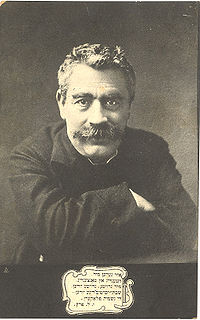A Quote by Chinua Achebe
"We have heard stories about white men who make the powerful guns and the strong drinks and took slaves away across the seas, but no one thought the stories were true." [said Obierika]"There is no story that is not true," said Uchendu. "The world has no end, and what is good among one people is an abomination with others. We have albinos among us. Do you not think that they came to our clan by mistake, that they have strayed from their way to a land where everybody is like them?"
Related Quotes
Stories? We all spend our lives telling them, about this, about that, about people … But some? Some stories are so good we wish they’d never end. They’re so gripping that we’ll go without sleep just to see a little bit more. Some stories bring us laughter and sometimes they bring us tears … but isn’t that what a great story does? Makes you feel? Stories that are so powerful … they really are with us forever.
The desire for story is very, very deep in human beings. We are the only creature in the world that does this; we are the only creature that tells stories, and sometimes those are true stories and sometimes those are made up stories. Then there are the larger stories, the grand narratives that we live in, which are things like nation and family and clan and so on. Those stories are considered to be treated reverentially. They need to be part of the way in which we conduct the discourse of our lives and to prevent people from doing something very damaging to human nature.
Remember on this one thing, said Badger. The stories people tell have a way of taking care of them. If stories come to you, care for them. And learn to give them away where they are needed. Sometimes a person needs a story more than food to stay alive. That is why we put these stories in each other's memories. This is how people care for themselves.
In war," answered the weaver, "the strong make slaves of the weak, and in peace the rich make slaves of the poor. We must work to live, and they give us such mean wages that we die. We toil for them all day long, and they heap up gold in their coffers, and our children fade away before their time, and the faces of those we love become hard and evil. We tread out the grapes, another drinks the wine. We sow the corn, and our own board is empty. We have chains, though no eye beholds them; and are slaves, though men call us free.
I started writing the book without realizing I was writing a book. That sounds stupid, but it's true. I'd been trying and failing to make a different manuscript work, and I thought I was just taking a break by writing some short stories. I'm not a very good short story writer - the amazing compression that is required for short stories doesn't come easily to me. But anyway, I thought I'd try to write some short stories. And a structure took shape - I stumbled upon it.
I thought I could capture the stories of the city on paper. I thought I could write about the horrors of the city. Horror stories you see. I tell you I didn't have to look far for material. Everywhere I looked, there were stories hidden there in the dark corners. . . . I wrote and still there were more. . . . No one would publish them. 'Too horrible,' they said. 'Sick mind,' they said. I thought I could write about the horrors of the city but the horror is too big and it goes on forever.
There was a point in my teenage years, when we were starting to play bigger shows and females were running after tour buses and all that, and my mom - and I remember this like it was yesterday - said: 'Look, I want you to know that I couldn't be prouder of you. You are extraordinary. You move people. But it doesn't make you better than them. You still put your pants on the same way as them, one leg at a time every morning.' I thought about learning to jump right into them, just to mess with her. But what she said stuck with me, and I think it's true.
Only common mortals like the Somervilles have good old rotten hates, dear,' said her mother. 'Sir Graham manages to love everybody and wouldn't know what you're talking about. Have a bun.' 'He doesn't love the Turks,' said Philippa. 'He kills them.' 'That isn't hate,' said Kate Somerville. 'That's simply hoeing among one's principles to keep them healthy and neat. I'm sure he would tell you he bears them no personal grudge; and they think they're going to Paradise anyway, so it does everyone good.
AS SOMBRAS DA ALMA. THE SHADOWS OF THE SOUL. The stories others tell about you and the stories you tell about yourself: which come closer to the truth? Is it so clear that they are your own? Is one an authority on oneself? But that isn't the question that concerns me. The real question is: In such stories, is there really a difference between true and false? In stories about the outside, surely. But when we set out to understand someone on the inside? Is that a trip that ever comes to an end? Is the soul a place of facts? Or are the alleged facts only the deceptive shadows of our stories?





































